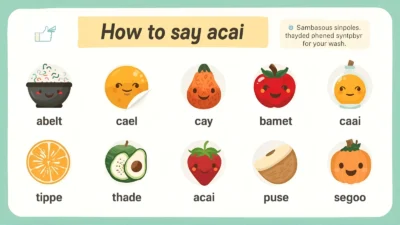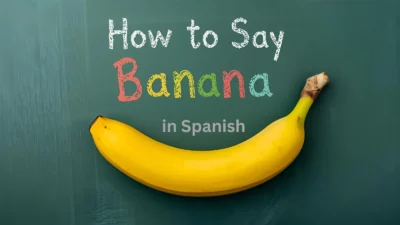Learning how to say thank you in Turkish is one of the most important steps when connecting with Turkish speakers. The most common phrase is teşekkür ederim, which works in most situations, but there are also shorter and more casual forms like sağ ol.
Mastering these variations helps you sound polite, natural, and culturally respectful in Turkish conversations. You’ll also learn how to say thank you in Turkish to a girl for more personalized expressions.
Plus, we’ll cover how to say thank you in Turkish pronunciation to make sure you sound confident and authentic.
Say Thank You in Turkish
15 Phrases Table
| No. | Turkish Phrase | English Meaning |
|---|---|---|
| 1 | Teşekkür ederim | Thank you (formal/polite) |
| 2 | Sağ ol | Thanks (casual) |
| 3 | Çok teşekkür ederim | Thank you very much |
| 4 | Teşekkürler | Thanks |
| 5 | Minnettarım | I am grateful |
| 6 | Çok sağ ol | Thanks a lot |
| 7 | Bin teşekkür | A thousand thanks |
| 8 | Teşekkür ederiz | We thank you (formal, plural) |
| 9 | Sağ olun | Thanks (polite to elders/strangers) |
| 10 | Allah razı olsun | May God be pleased with you (religious) |
| 11 | Şükranlarımı sunarım | I offer my gratitude |
| 12 | Müteşekkirim | I am thankful (formal) |
| 13 | Çok teşekkür ederiz | Thank you very much (plural/polite) |
| 14 | Binlerce teşekkür | Thousands of thanks |
| 15 | Teşekkür ederim canım | Thank you, dear (to a girl/friend) |
Let’s explore 15 Turkish expressions for “thank you”, complete with dialogues and the origins or context behind each one!
1. Teşekkür ederim – Thank you

Origin:
Derived from Ottoman Turkish and Arabic roots, it’s the most standard and polite way to say “thank you” in Turkish.
Example:
👤 User A: Yemek harikaydı.
👤 User B: Teşekkür ederim!
Use: Formal or polite situations, good for strangers, adults, or service workers.
2. Teşekkürler – Thanks
Origin:
A shortened form of teşekkür ederim, more casual.
Example:
👤 User A: Sana yardım ettim.
👤 User B: Teşekkürler!
Use: Semi-formal, friendly.
3. Sağ ol – Thanks / Be well
Origin:
Literally means “stay healthy.” A very Turkish way to say thanks with a touch of well-wishing.
Example:
👤 User A: Kapıyı tuttum.
👤 User B: Sağ ol!
Use: Informal, used among friends or family.
4. Çok teşekkür ederim – Thank you very much

Origin:
“Çok” means “very.” This is the more emphatic form of teşekkür ederim.
Example:
👤 User A: Hediyenizi beğendiniz mi?
👤 User B: Evet, çok teşekkür ederim!
Use: Formal and heartfelt; use when you really mean it.
5. Minnettarım – I am grateful
Origin:
From Persian roots, “minnet” means gratitude. This phrase is deeply expressive.
Example:
👤 User A: Seni affettim.
👤 User B: Minnettarım…
Use: Deeply sincere or emotional situations.
6. Eksik olma – Don’t be absent
Origin:
A traditional phrase that wishes continued presence and support. Common in rural and older communities.
Example:
👤 User A: Yine yiyecek getirdim.
👤 User B: Eksik olma, kardeşim.
Use: Old-school gratitude; poetic or respectful.
7. Var ol – May you exist
Origin:
Rooted in Ottoman and poetic Turkish. Like saying “May you be,” a spiritual expression of thanks.
Example:
👤 User A: Bu senin için.
👤 User B: Var ol!
Use: Literary or emotional situations, sometimes seen in Turkish TV dramas.
8. Allah razı olsun – May God be pleased with you

Origin:
Islamic in tone, often used in traditional or religious families.
Example:
👤 User A: Para sorununu hallettim.
👤 User B: Allah razı olsun!
Use: Religious or older generations.
9. Bin teşekkür – A thousand thanks
Origin:
An emphatic, poetic version often used in writing or dramatic speech.
Example:
👤 User A: Seni kurtardım.
👤 User B: Bin teşekkür!
Use: Poetic, exaggerated, or written communication.
10. Çok sağ ol – Thanks a lot
Origin:
Combining “çok” (very) and “sağ ol” (be well), this version is warmer than just “sağ ol”.
Example:
👤 User A: Telefonunu getirdim.
👤 User B: Çok sağ ol!
Use: Friendly, common in everyday speech.
11. Eyvallah – Alright / Thanks (contextual)
Origin:
Sufi and cultural expression of agreement, respect, or gratitude.
Example:
👤 User A: Sana bir çay ısmarlayayım.
👤 User B: Eyvallah!
Use: Informal, often among men or in cool, respectful settings.
12. Tşk. – Text message shorthand for teşekkür ederim
Origin:
Internet and mobile texting culture.
Example:
👤 User A: Slm, yardımların için tşk.
👤 User B: Rca ederim 😊
Use: Only in writing or texting.
13. Çok memnun oldum – I’m very pleased (thank you for meeting me)
Origin:
Used as a polite way to end a first conversation or express gratitude after a meeting.
Example:
👤 User A: Tanıştığımıza memnun oldum.
👤 User B: Ben de. Çok memnun oldum.
Use: Social introductions or professional encounters.
14. Ne kadar teşekkür etsem azdır – No matter how much I thank you, it’s not enough
Origin:
Dramatic and heartfelt, common in Turkish TV series or deeply emotional moments.
Example:
👤 User A: Seni kurtardım çünkü dostumsun.
👤 User B: Ne kadar teşekkür etsem azdır…
Use: Dramatic or deeply emotional thanks.
15. Rica ederim – You’re welcome / I insist
Origin:
Technically a response to “thank you,” but can also be used as an accepting or humble way to say thank you back.
Example:
👤 User A: Çok teşekkür ederim.
👤 User B: Rica ederim.
Use: Polite reply, but when said softly, it can reflect mutual gratitude.
Conclusion:
Learning how to say thank you in Turkish is more than just memorizing a phrase—it’s about showing gratitude with sincerity and respect. Whether you use teşekkür ederim, sağ ol, or gender-specific expressions like when addressing a girl, every variation adds warmth to your conversation. With the right pronunciation, you’ll sound natural, polite, and connected to Turkish culture.

Sophia Mitchell is a passionate content writer known for creating clear, engaging, and informative articles.
She focuses on delivering well-structured content that is easy for readers to understand and trust.
Sophia Mitchell currently contributes quality writing to repliesnest.com, helping readers find accurate answers quickly.



